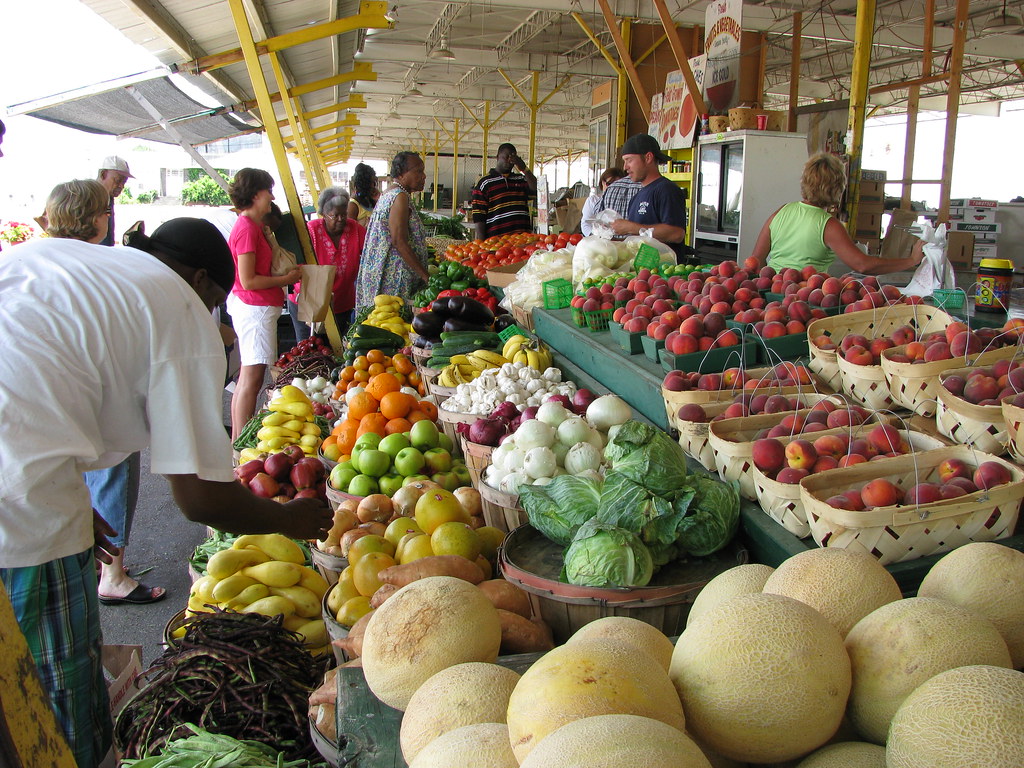by Sarah Badger
Environmentalists sometimes seem to be the outcasts of society, as the nature of the work itself involves drastic change. Despite all of this, I am a firm believer that being an environmentalist and living sustainably is not as backwards as people seem to think. Living a sustainable and simple lifestyle is the true nature of human existence, rather than our material-obsessed and complex modern society. It may also seem that environmentally-friendly and sustainable practices involve a great deal of effort, but this is not the case. After overcoming the idea that environmentalists are “tree huggers,” “hippies,” or “leftists,” you will begin to realize that sustainable practices could not be simpler to integrate into everyday life. I am going to break it down into waste reduction, food choices, product choices, and falling in love with the environment.
Waste Reduction.
Make small changes to minimize your output of waste. Producing waste contributes to climate change, habitat destruction, water pollution, and dangerous chemical exposure. The good news is that living a waste-free life or even just reducing the amount of waste you produce can be easy.
- Become an avid thrift shopper. Purchase household items, furniture, clothing, jewelry and other miscellaneous items from thrift and consignment shops when needed.
- Never throw clothes away--either sell or donate. In addition, old clothes can be cut up and used as towels, reusable grocery bags, pet toys, and many other household items.
- Buy products in bulk to reduce packaging. In addition, most co-ops and health food markets have dispensers which allow you to purchase products in your own reusable containers so you can enjoy waste-free grocery shopping.
- Use reusable produce bags and opt for fruit and vegetables that aren’t wrapped in plastic.
- Choose recycled goods, paper, and packaging with the highest post-consumer content you can find to reduce your use of raw materials.
- Learn to recycle properly--you will soon be an expert and it will become second nature to you. I recommend looking through the website “Rethink Recycling,” as it is a guide to recycling in the Twin Cities. They have a very useful “Know What to Throw” guide.
- If you menstruate, consider exploring the many zero waste menstrual products as a replacement for disposable pads or tampons. There is everything from menstrual cups, to reusable cloth pads, to menstrual underwear.
- Bring reusable shopping bags with you to the grocery store, and turn down paper and plastic bags when you only have a few items. Reusable bags are extremely inexpensive and sold at most grocery/department stores, and you can even make your own from old shirts.
- Learn to compost or bring compost to a facility. Most food is compostable at home (and all food compostable at large facilities), and check the label on packaging because often it is too. Food and compostable products can take a long time to decompose in a landfill, therefore composting this is a great way to reduce food waste.
Food Choices.
I cannot emphasize the importance of sustainable food choices enough.This includes where you purchase food, what you purchase, and what companies you purchase from.
- Adopt a plant-based diet or limit your consumption of animal products. If you cannot give up animal products completely, consider reducing your consumption or replacing several meals a week with plant based meals.
- Buy local. Purchasing from local farms and markets means that your food didn’t have to travel thousands of miles to get here, drastically cutting transportation emissions. In addition, local farms generally use less pesticides, making for more environmentally friendly farming practices.
- Plan meals in advance to avoid food waste.

Body, Makeup, and Household Products.
Reconsider the body care, makeup, and household products you are using. It is important to know what companies you choose to spend your dollar on and whether they are choosing environmentally-friendly practices. You are voting with your dollar and promoting the continuation of the company’s practices. In addition, by choosing environmentally-friendly products, you are reducing the amount of harmful chemicals put into the environment.
- Opt for natural body care and makeup products. These are much easier to find than you may think; almost every co-op, market, grocery store, and even department store carries options.
- Check that the product is certified by environmental organizations, or better yet, do some research on the company to learn about their environmental practices.
- Consider purchasing castile soap and making products in reusable containers. This soap is versatile and can be used to make all-purpose household cleaners, shampoo, body and hand soap, shaving cream, facial cleanser, pet shampoo, floor cleaner, dish soap, and has many other uses. There are endless recipes online, however many of these simply involve diluting castile soap and water.

Philosophy.
Fall in love with the environment. Stand up for it. Become its protector and do everything in your power to conserve it. This will make it easier to live a sustainable life because you’ll be standing up for something you truly care about.
- Read books about the environment to expand your knowledge and spark interest.
- Try to get outside at least once a day. If you are a busy person, it can be as simple as a short morning/evening walk or eating your meals outside.
- Visit parks and foster a relationship with the land, water, and animals around you.
- Participate in environmental activism. Join an environmental group, protest corporations taking part in environmental destruction, or educate others about their impact on the environment.

While it may seem overwhelming at first, I promise living sustainably is easy after developing a habit. Baby steps are the best way to go. Perhaps today you can learn how to recycle properly today, and tomorrow you can choose a plant-based meal. Once your current household and body products are used up, you can opt for environmentally-friendly ones and bring your own reusable containers to fill them with. When you need a new item or feel like some shopping therapy, you can check out your local thrift shop. You can redefine what it means to be an environmentalist: a forward-thinking, compassionate, and motivated individual. Lead a sustainable lifestyle with grace, and people around you will be inclined to follow your example. Your lifestyle doesn’t have to come at the expense of the environment, and the good news is it is entirely possible for the two to coexist in harmony.
----

 CGEE Student Voice
CGEE Student Voice
No comments:
Post a Comment